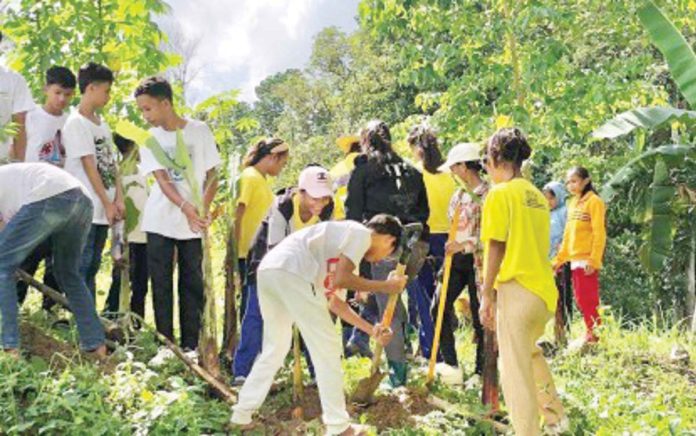
ILOILO City – In just four years, Western Visayas’ farm schools have sparked an agricultural renaissance among local students, turning classrooms into green hubs for sustainable food production and economic resilience.
With nearly 8,000 junior high school students now embracing farming education, the region is cultivating a generation geared towards self-sufficiency and entrepreneurship.
Under the initiative led by the Department of Education (DepEd), 31 farm schools across Western Visayas now offer courses that go beyond traditional agriculture, introducing students to fisheries, livestock, and entrepreneurial skills.
Dr. Elena Gonzaga, curriculum and learning management division chief, highlighted the program’s emphasis on hands-on learning tailored to the region’s unique environment, stating, DepEd is building knowledge that meets local needs, preparing students not just for jobs, but for ownership in food production.
The initiative has attracted attention nationwide, with other regions eager to replicate Western Visayas’ success. Regional Director Ramir Uytico is pushing for further support to scale these efforts, noting the program’s potential to alleviate local poverty and hunger through a new generation of skilled young farmers.
Initial funding of P106 million has bolstered the schools, and Uytico aims to secure continued backing from DepEd’s central office.
Schools are already branching into unique projects to create localized agricultural solutions. The Jayobo Farm School in Lambunao, Iloilo, has integrated native pig farming and plans to launch a community talipapa where students can sell their produce, generating income for the program and financial rewards for learners.
“If we want to eradicate poverty and hunger, support our farm schools,” Uytico said.
Iloilo City’s farm school, supported by the local government, plans to incorporate hydroponic farming alongside mushroom culture, adding a sustainable urban agriculture element to its curriculum.
By expanding into commercial partnerships, the farm schools hope to attract support from local hotels and restaurants, building a market for student-grown products and further enhancing the viability of these educational programs.
As these farm schools take root, they not only promise food security but also pave the way for young minds to become entrepreneurs and environmental stewards. (With a report from the Philippine News Agency)/PN



